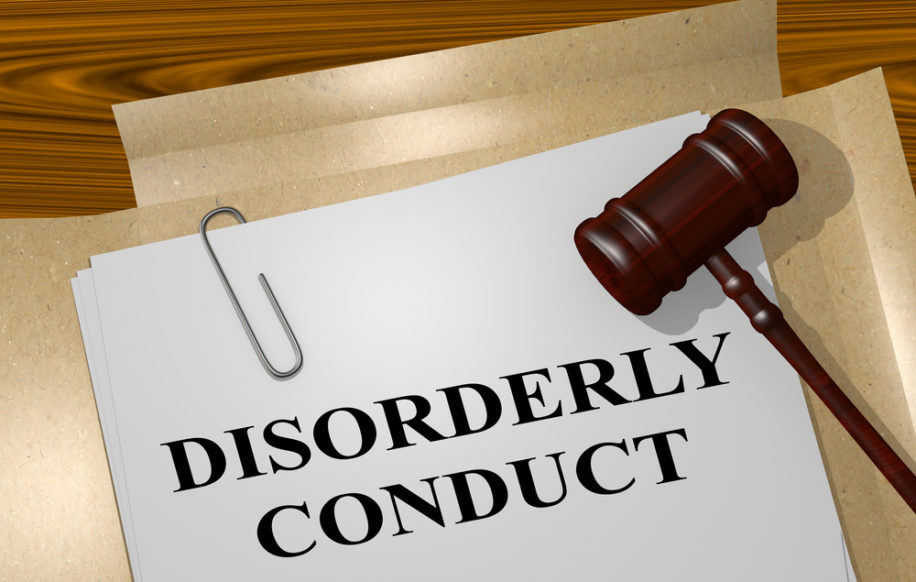First, under R.C. 2917.11(A), a person may be convicted of disorderly conduct if the prosecutor proves that the person recklessly caused inconvenience, annoyance, or alarm to another person by doing any of the following:
- Fighting, threatening harm to someone else or property, or acting violently or turbulently;
- Making unreasonable noise or an offensively coarse utterance, gesture, or display or communicating unwarranted and grossly abusive language to any person;
- Insulting, taunting, or challenging another, under circumstances in which that conduct is likely to provoke a violent response;
- Hindering or preventing the movement of persons on a public street, road, highway, or right-of-way, or to, from, within, or upon public or private property, so as to interfere with the rights of others, and by any act that serves no lawful and reasonable purpose of the offender;
- Creating a condition that is physically offensive to persons or that presents a risk of physical harm to persons or property, by any act that serves no lawful and reasonable purpose of the offender.
Case law in Ohio explain each of these in more detail and can help provide examples of real life situations where these situations arise. For example, as to number (4), which prohibits preventing someone from moving to or from private or public property, here are some real life examples:
- Refusing to allow someone on or off personal property;
- Unreasonably refusing to give girlfriend her car keys after requested by a police officer for 20-30 min;
- Refusing to allow an electric company to enter property in order to remove utility poles (State v. Carter, 3d Dist. No.11-10-08, 2011-Ohio-522, ¶ 28);
Although Ohio’s disorderly conduct statute prohibits acting offensively, the First Amendment protects certain words – even if rude or offensive – from being punished criminally.
For example, in one recent Ohio case, the defendant was charged with disorderly conduct because he repeatedly called his feuding neighbor a vulgar name. But since the facts showed that the neighbor was not actually fearful (he was egging the defendant on) and there was no other physical altercation, the court found that the speech was protected – and thedisorderly conduct conviction overturned.
In another recent disorderly conduct case, the defendant shouted a profanity when being questioned by an officer. But the court found that the defendant’s profanity and name calling did not incite violence and was not likely to incite a violent response in the average police officer (who are expected to have thick skin). Thus, the disorderly conduct conviction was reversed.
Disorderly Conduct That Applies Only When Voluntarily Intoxicated
Second, there is a specific portion of the statute that addresses behavior when someone is voluntarily intoxicated. If the person appears to be intoxicated, that is enough to be charged under this (B) subsection. The statute specifically says that if someone appears intoxicated, that is probable cause to be believe the person is voluntarily intoxicated.
Thus, for purposes of division (B) of this section. R.C. 2917.11(B)(1), someone could be convicted of disorderly conduct if the person:
- Is intoxicated;
- Is in a public place or in the presence of two or more people;
- Engages in conduct likely to be offensive or to cause inconvenience, annoyance, or alarm to people of ordinary sensibilities;
- If the defendant were not intoxicated, he or she should know that their conduct is likely to be offensive or cause annoyance or alarm to others.
Third, there is a second portion of the statute addressing behavior while intoxicated. Under R.C. 2917.11(B)(2), someone can be found guilty of disorderly conduct if the person:
- Is intoxicated;
- Engages in conduct or creates a condition that presents a risk of physical harm to the offender or another, or
- Engages in conduct or creates a condition that presents a risk of harm to the property of another.



